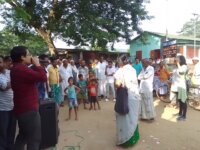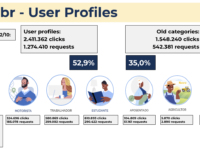"Påkobla Hjelpemiddel" (PH) is a digital solution developed from a digitalization department in Kristiansund Municipality, Norway. This innovative system addresses challenges in inventory, distribution, and logistics, improving the efficiency of delivering assistive devices. PH will be completed as a system in the end of 2024, but is today used by four municipalities that are a part of the innovation.
Innovation Tag: Communication
This is a large-scale national initiative employing artificial intelligence techniques to proactively predict which patients are most likely to miss their appointments in outpatient clinics.
It uses machine learning techniques to process, analyse, and train data in the electronic medical record (EMR) system, encompassing patient, clinic, and appointment history.
The no-show rate at KAMC has decreased by 10%.
The Sewa Setu Portal is a transformative initiative by the Government of Assam that utilizes cutting-edge technology to revolutionize public service delivery. It addresses longstanding issues such as slow service, accessibility challenges, and bureaucratic delays, thereby enhancing efficiency, transparency, and accessibility for citizens and businesses. The project aims to offer over 1000 online services, including advanced features like automatic eligibility notifications and digital…
Born in Belgium Professionals is a RIZIV project that offers a digital tool, developed by and for professionals who work with or for (vulnerable) pregnant women. The tool is an online, shared platform that centralizes information about the psychosocial situation of the pregnant woman and makes it available to her care providers and healthcare providers from the (para)medical and social sector, fully in accordance with privacy legislation (GDPR).
DCCEEW partnered with the CSIRO to develop a novel approach to track social licence for the energy transition. A valid and reliable survey instrument was designed and deployed to measure Australian attitudes and behavioural intentions towards the energy transition. As the energy transition has been met with concern from communities, results from this survey are key to developing evidence-base policy, and to bassline and track social licence to ensure a speedy and just energy transition.
Rainlevelr is a joint approach to reduce the risk of flooding. By utilizing the water basins of horticultural companies, the Delfland horticultural area can absorb heavier downpours, thus preventing flooding for both the businesses and the surrounding area. In Rainlevelr, regional authorities, ‘Glastuinbouw Nederland’ and horticultural companies collaborate closely. The uniqueness of this innovation lies in the collaboration among various stakeholders involved in the use of water buffers…
The DYPA Career Days, organized by the Public Employment Service (DYPA) in Greece, fosters direct engagement between the business sector and jobseekers. This marks a significant departure for DYPA as these events are now systematically conducted, spanning the entire country. A key strength of DYPA’s Career Days lies in their comprehensive promotion of employment opportunities and the strategic engagement of interested individuals through a process characterized by simultaneous, adaptable, and…
MauPass has been developed for citizens and businesses to transact easily and securely with Government online. It is a single window of authentication service to provide a layered approach towards e-Authentication implementation for all government and other e-services. This initiative follows an urgent need for better identity and access management for a trusted ecosystem.
Brazil’s gov.br website offers almost 5.000 public services and has more than 200 million monthly page views on average. With so many service options, it’s paramount to make them easily available. Under that mindset, the Ministry of Economy developed two important improvements to its usability: the first is the use of AI to recommend services based on the citizen's browsing history. The second was creating User profiles as a way of finding services based on the citizens’ journeys.
The City of Ilion has developed a mini forest park within its urban complex. The goal of this pocket park, measuring 600 square meters, was to become, within a short period of time, a dynamic ecosystem that provides critical benefits to people and to urban wildlife. Its primary goal was to be an open nature-based school for the children of the Municipal Kindergarten – which is located next to the mini forest, as well as their caregivers and the neighbourhood inhabitants.





